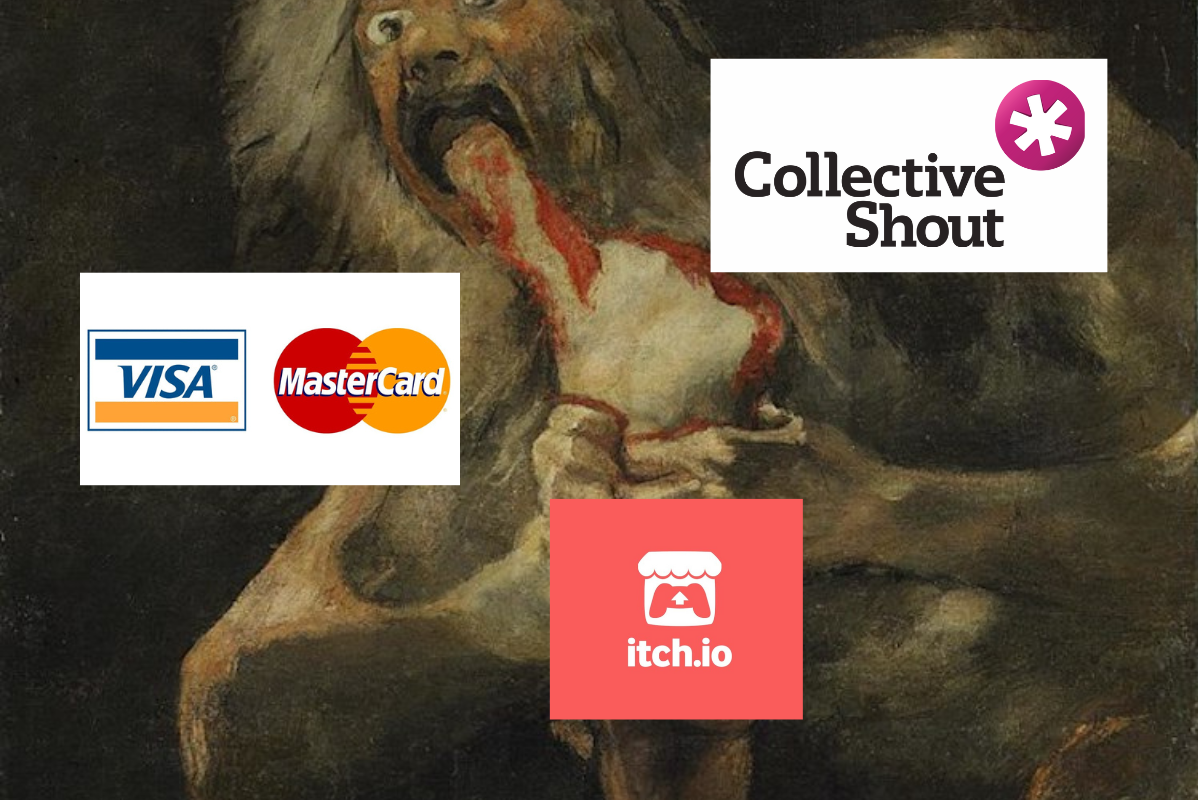Recent developments have seen an Australian anti-porn group claiming responsibility for Steam’s new content restrictions, igniting a complex conversation about censorship, corporate responsibility, and freedom of expression. This situation has been particularly contentious within the gaming community, where concerns about the impact on LGBTQ+ themed games and the broader implications for digital media have come to the forefront.
As we explore this issue, we delve into the roles of various stakeholders, including activist groups, payment processors, and game platforms. We also consider the broader repercussions for independent journalism and free expression in the age of digital content moderation.
What are the implications of collective shout’s campaign on game censorship?
Collective Shout’s campaign against certain types of content on Steam has sparked a significant conversation about the extent of video game censorship. The group’s efforts have led to greater scrutiny over the types of games that are available on the platform, particularly those featuring adult content.
The campaign’s success is not without controversy as it raises questions about who should be the arbiters of acceptable content. The impact on game developers and the broader gaming community has been palpable, with many expressing concerns about the precedent this sets for creative freedom and self-expression.
Additionally, the situation underscores the influence of activist groups on corporate policies. Collective Shout’s campaign demonstrates how targeted activism can lead to significant changes in business practices, prompting a reevaluation of the balance between advocating for social causes and respecting diverse viewpoints within a global community.
As a result, developers and gamers alike are now paying closer attention to the dynamics of content creation and distribution, and the potential for external groups to influence this process.
How has valve responded to pressure from payment processors?
Valve, the company behind Steam, has found itself in a challenging position as it navigates the demands of payment processors and the expectations of its user base. Payment companies such as Visa and Mastercard have become increasingly concerned about being associated with platforms that offer adult content.
The pressure from these financial entities has led Valve to enforce new content restrictions, demonstrating the financial influence on content availability. The company’s response indicates a complex relationship between commerce and censorship, one where the bottom line may significantly influence the accessibility of certain types of content.
Valve’s actions have sparked discussions about the responsibility of platform providers in safeguarding the interests of their diverse user communities, as well as the power that payment processors wield in shaping online content landscapes.
What role do payment companies play in online content moderation?
- Payment processors have become unexpected but powerful players in the realm of online content moderation.
- By dictating the terms of service, companies such as Visa and Mastercard can effectively determine the types of content that are available for purchase.
- Their influence extends beyond just the gaming industry, affecting a multitude of online platforms that rely on their services for financial transactions.
- The precedent set by these companies may have a chilling effect on the creation and distribution of content that pushes the boundaries of conventional norms.
What are the consequences for LGBTQ+ themed games following censorship?
The censorship of LGBTQ+ content in video games is a significant concern. Such restrictions not only limit the representation of diverse identities and experiences but also restrict access to content that may have a meaningful impact on marginalized communities.
By enforcing these content restrictions, platforms like Steam may inadvertently contribute to the erasure of LGBTQ+ voices in the gaming industry. This has implications for the cultural and social richness of the medium, potentially stifling the development of games that explore a wide range of human experiences.
The censorship also sends a disconcerting message to LGBTQ+ gamers and developers, who may feel that their stories are not valued or welcomed within mainstream gaming platforms.
How do activist groups like collective shout influence media?
Activist groups, such as Collective Shout, play a significant role in shaping media narratives and corporate policies. They can draw public attention to issues that may have gone unnoticed and motivate companies to reconsider their practices.
However, the power of these groups to influence content does not come without debate. There is an ongoing conversation about the legitimacy and extent of their influence, especially when it could lead to the suppression of artistic freedom and expression.
The strategies employed by such groups, which can range from public campaigns to direct engagement with corporations, often highlight the tension between advocating for societal change and protecting individual rights.
What are the concerns surrounding free expression in gaming?
The issue of free expression in gaming is a complex one. On one hand, there is a need to protect vulnerable groups from harmful content. On the other hand, there is a need to preserve the creative freedom that is essential to the art form.
The recent actions of Collective Shout and the ensuing content restrictions on Steam have put the spotlight on this delicate balance. There is concern that overly stringent regulations could stifle creativity and limit the storytelling potential of games.
This situation has sparked a vigorous debate about the importance of maintaining an open and diverse gaming landscape where creators can explore a wide range of topics without fear of censorship.
One of the platforms that has been at the center of the censorship discussion is Steam, where an Australian anti-porn group claims responsibility for Steam’s new content restrictions. In the following video, we delve deeper into the controversy:
How does censorship affect independent journalism in the digital age?
In the digital age, independent journalism has become a critical voice in holding institutions accountable, including the examination of censorship practices. The restrictions imposed by platforms like Steam have broader implications for journalists who often serve as the public’s watchdogs.
The decline in independent journalism could lead to a diminished capacity for investigative reporting on issues like censorship, potentially leaving the public with a less nuanced understanding of the forces shaping their media consumption.
The situation underscores the need for robust, independent journalism that can challenge the status quo and provide comprehensive coverage of complex issues such as censorship and its implications for free expression.
Preguntas relacionadas sobre las repercusiones de la censura en los videojuegos
What is the role of payment processors in content censorship?
Payment processors like Visa and Mastercard have become influential in the realm of content censorship. They have the power to enforce policies that can lead to the removal of content from platforms if it doesn’t align with their standards.
As entities that facilitate transactions, they are increasingly taking on the role of gatekeepers, determining what is acceptable for consumption based on their risk assessments and public image considerations.
How does Collective Shout influence gaming content?
Collective Shout influences gaming content by campaigning against what it perceives to be harmful material. The group’s advocacy efforts can result in increased media coverage, public pressure, and ultimately, the implementation of new content policies by gaming platforms.
Their actions underscore the power that activist groups can wield in shaping cultural narratives and influencing the types of games that reach the market.
What are the effects of censorship on LGBTQ+ games?
Censorship can significantly impact LGBTQ+ games by limiting their availability and reducing visibility. This not only affects the developers who create these games but also the players who seek representation and understanding through gaming.
The restriction of such content can contribute to a culture that marginalizes non-mainstream narratives, undermining the diversity that is essential for a vibrant gaming ecosystem.
Why is independent journalism important in censorship discussions?
Independent journalism plays a vital role in censorship discussions by providing unbiased reporting and analysis. Journalists can uncover the motivations and implications of censorship, informing the public and fostering a more informed debate.
Without independent journalism, the discourse around censorship could become one-sided, lacking the critical perspectives necessary to understand its full impact.
How has Valve responded to censorship pressures?
Valve has responded to censorship pressures by enforcing new content restrictions on Steam, likely in response to concerns raised by payment processors and advocacy groups like Collective Shout. While the company aims to maintain its diverse catalog, it also has to balance the demands of financial partners and the need for a socially responsible platform.
This response highlights the challenges faced by content platforms in moderating material that satisfies all stakeholders, from creators to consumers and financial partners.
 The Steam Deck 2 doesn’t need to happen because Valve will win either way (though I hope it does)
The Steam Deck 2 doesn’t need to happen because Valve will win either way (though I hope it does)



This is such an interesting discussion about the balance between censorship and creative freedom in gaming. It’s fascinating to see how activist groups can influence major platforms like Steam, and it certainly raises some important questions around who decides what’s appropriate. The impact on indie developers and LGBTQ+ representation is definitely worrying, but it’s also a reminder of how powerful collective voices can be in shaping industry standards. Thanks for shedding light on this complex issue!